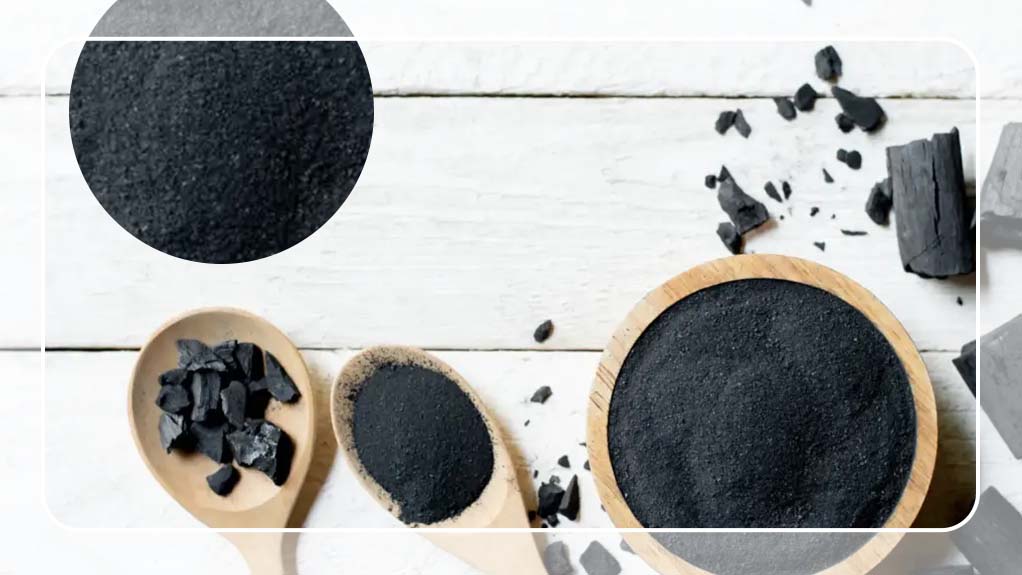Depending on the material used and the manufacturing method, powdered activated carbon (PAC) normally has an apparent density between 23 and 46 lb/ti3 and a diameter smaller than 0.1 mm. Usually, iodine and molasses values are used to describe PAC. These figures indicate how many tiny and big pore volumes there are in a sample of PAC. The minimum iodine number required by AWWA regulayions for PAC is 500.
Wood, lignite, and coal are examples of organic resources with a high carbon content that are used to make PAC.
Water treatment facilities employ powdered activated carbon on an as-needed basis or on a full-time basis to remove organic pollutants or manage flavor and odor. PAC can be fed either as a slurry using metering pumps or as a powder using dry feed equipment. Smaller amounts are often administered using dry feed systems. Additionally, PAC can be dissolved in water and supplied as a slurry. Slurry systems are often employed when PAC is introduced regularly and at large doses

Typically, powdered activated carbon is introduced early in the treatment process and then removed by the filter beds during backwashing or by sedimentation. The PAC application point should prevent coating PAC particles with other water treatment plant chemicals and allow for sufficient interaction time between the PAC and organics. Most taste and odor chemicals require a minimum contract duration of around 15 minutes; however, Methyl-Iso-Borneol (MIB) and Geosmin elimination may necessitate substantially longer contact times.
Activated carbon doses in powder form can range from 1 to 100 mg/L, depending on the kinds and amounts of organic chemicals present. The normal dosage range for little taste and odor control is 1 to 20 mg/L. When powdered activated carbon is used, it produces more sludge that cannot be recycled as used GAC can. Even while powdered activated carbon sludge must be disposed of in compliance with state and federal rules and will have high quantities of impurities eliminated, it is unlikely that it will be considered hazardous waste.
Common powdered activated carbon mesh sizes used are Minus 80, Minus 200, Minus 325, and DCF.
Fill out the form below and for specialist will be touch.